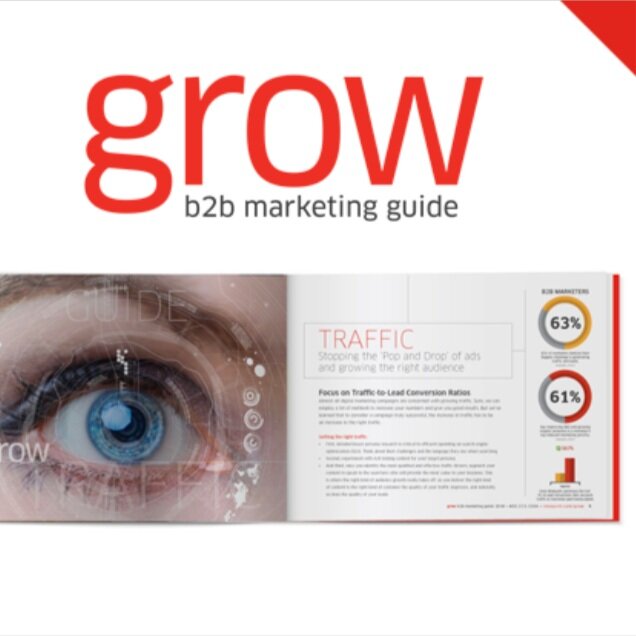As a leader, your ability to accurately evaluate your team's performance determines your success. But, quite often, we see B2B technology companies unsure which marketing KPIs are indeed "key performance indicators" or how to measure their ROI.
Keeping this in mind, we'd like to take an honest and often hard-to-face look at signs that your current KPIs are not helping you generate sales-qualified leads and meet business goals.
7 Signs You Need to Reevaluate Your Marketing KPIs
1. You Treat a B2B Marketing KPI as an Employee Performance Measure
Yes, you need to objectively measure employee performance. But your KPIs are not intended to be used this way.
Failing to meet a KPI isn’t a personal shortcoming. If you use B2B technology KPIs in this way, you end up with a lot of defeated and distrustful people. They feel punished for something outside of their control and rewarded for things they didn't directly impact.
A KPI measures how well your marketing strategy and implementation are working. It tells you if you're using analytics and automation technologies effectively to connect with your audience.
Alternatively, create a culture where voices are heard and people work together to figure out what's not working and fix it.
2. Your KPIs Disconnect from Your Goals
If a KPI doesn't provide evidence you are progressing toward reaching a meaningful business goal, then it's not a good KPI.
For example, if the number of Facebook page likes is a KPI, then you need to be able to show how "Facebook likes" directly lead to qualified sales leads.
Honestly, we do a lot of things in B2B marketing that aren't directly related to goals, but we know intuitively they generate harder-to-measure elements like trust and goodwill. These may have a place in your tactics but they don't qualify as KPIs.
3. KPIs Don't Correlate with Each Other
If two marketing KPIs connect directly to a goal, then when one is performing well the other should also. If you see two of your KPIs moving in the opposite directions, then one B2B marketing KPIs may not be as strong of an indicator as you think.
4. Your KPIs Are Loosely Defined
Within many organizations, whether a KPI was met is up for debate. It depends on how you look at it, or you may have different ways to calculate it.
This should never be the case.
The KPIs may not be the problem.
- Look at how you define the KPI.
- Agree on how you'll define it and measure it beforehand.
- Make sure you have the analytics tools in place to actually measure what you're trying to measure.
For example, what is a sales qualified lead? To achieve marketing-sales alignment, marketing and sales have to agree on this definition and the lead scoring that goes into that definition.
5. You Can't Recognize the Difference Between KPI Variability & Trouble-Brewing
Unless you can see the future, you don't know the exact number your KPI will reach. Yet we think of KPIs as a single number:
- Number of leads
- Specific conversion rate
- Precise customer acquisition cost
This often creates the perception that something is wrong when you see an undesirable downward/upward trend.
But is it? Marketing is all about the law of averages and a "game of numbers" in some cases. You could spend a lot of wasted time spinning your wheels trying to figure out what's wrong when you're seeing a natural market variation.
Consistent tracking of KPIs will help you identify these trends and learn to recognize the difference.
6. Data Collection Is Bloated
A 2020 Business Intelligence survey discovered a disturbing truth about Big Data. Companies are learning how to collect it. But few know how to use it. In fact, an estimated 50% of the data companies collect serves no purpose.
That's a waste of cloud server space, processing power, and analytics power. What's worse, too much useless data makes it impossible to see what's important.
How does it happen? Several ways. Companies:
- Buy out-of-box analytics tools and never customize them
- They start tracking something, abandon it, and forget to stop tracking it
- Have no system to evaluate data collected to see if it's useful
- Don't have a system to deliver data to leaders in a useful form, such as visuals, aggregated data from multiple sources in one place, analytics, Business Intelligence
7. Your B2B Technology Company Struggles to Use Data to Meet KPIs
Another huge piece of unused data is knowing how to make use of it. Machine learning and marketing automation technologies are marketing tools that can directly analyze and apply data to directly impact KPIs in a way you can immediately see.
These tools help you:
- Automate tedious tasks
- Achieve perfect timing with the ideal audience
- Create the perfect sales funnels
- Optimize conversions
- Lower Customer Acquisition Costs (CAC)
- Generate more sales qualified leads
- Increase Marketing ROI (MROI)
Are you seeing any of these KPI warning signs in your company? Find out how Relequint helped this B2B technology company increase its conversion rate by 220% by systematically addressing these warning signs.







 By
By 
